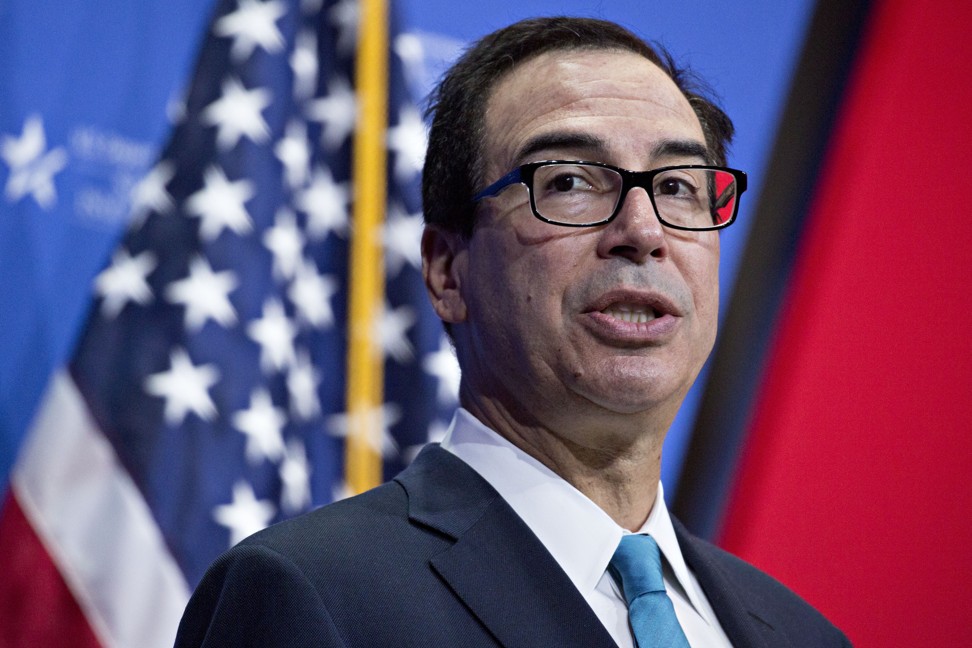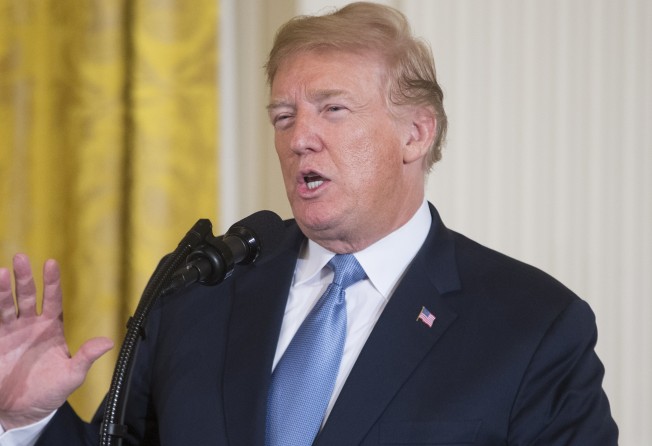
Beijing ‘closely watching’ Donald Trump’s plan to restrict Chinese investments
China says it’s concerned and ‘will assess potential impact’ on companies

Beijing on Wednesday said it is “closely watching” US President Donald Trump’s planned restrictions on investments from China and “will assess the potential impact on Chinese companies”.
The commerce ministry was responding to reports on Tuesday that Washington would step up scrutiny of Chinese investments in the United States.
Later on Wednesday, Washington confirmed it would rely on an existing Treasury Department-led committee to restrict new Chinese investments in US technology companies, retreating from a more aggressive approach that would have dramatically limited China’s ability to invest in the United States.
Under Trump’s proposal, the Committee on Foreign Investment in the United States (CFIUS) will vet Chinese deals to help meet the objectives of his plan to restrict the transfer of US technology to China.
Earlier in the day, foreign ministry spokesman Lu Kang also said Beijing was concerned about the impact of planned restrictions on Chinese investment deals.
Lu said “major economies” should facilitate investment flows and “normal trade and investment activities” should not be viewed “in the zero-sum mentality of the cold war era”, when asked about the move during a regular press briefing.
Although not as harsh as a previously reported plan targeting buyers with 25 per cent or more Chinese ownership, economists said Washington would almost certainly enhance its screening of Chinese investments in America.

US Treasury Secretary Steven Mnuchin tweeted earlier this week that the restrictions would be applied not just to China but to “all countries that are trying to steal our technology”.
Iris Pang, chief Greater China economist at ING Bank, said “the target is obviously China”.
“National security is largely an excuse. In reality, it can be expanded to technologies, telecommunications, the internet of things and many other areas,” Pang said.
US restrictions on Chinese investment would escalate their trade hostilities, which for now are focused on import tariffs. Washington is due to impose 25 per cent tariffs on US$34 billion worth of Chinese imports from July 6, which China will match with 25 per cent duties of its own on the same value of American goods.
Trump has also threatened to slap 10 per cent tariffs on another US$200 billion worth of Chinese imports if Beijing retaliates. If those go into effect and China refuses to step back, the White House has said it would identify a further US$200 billion of Chinese products for extra tariffs.
Stricter reviews of Chinese deals by Washington would also be a fresh setback for investment flows into the United States.
Chinese investment in the country fell to US$29 billion last year, from US$46 billion in 2016, but it was still twice the level of US investment in China last year, according to a report by the National Committee on US-China Relations and Rhodium Group in April.
That drop was largely a result of Beijing’s curbs on “irrational outbound investment” in areas including property, hotels, entertainment and sports clubs, the report said.
Analysts said deals in hi-tech sectors and involving state-owned enterprises would be targeted in Washington’s restrictions and Beijing may have to prepare.
Julian Evans-Pritchard, senior China economist at Capital Economics, said Washington’s decision to close the door on Chinese money could jeopardise Beijing’s plan to move up the value chain through acquisitions.
“One of the motivations behind Chinese acquisitions in the US is to acquire technological know-how in order to move up the value chain. It will become more challenging in the future,” he said.
Unlike with import tariffs, the Chinese government has limited capacity to engage in tit-for-tat retaliation against US investments in China at a time when it is trying to lure US investors.
Last week, President Xi Jinping told a group of foreign business executives in Beijing that China would remain open for them.
“At the end of the day, Chinese have more to lose. They obviously rely more on the US resources and technologies,” Evans-Pritchard said.